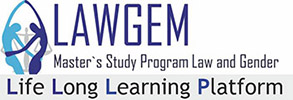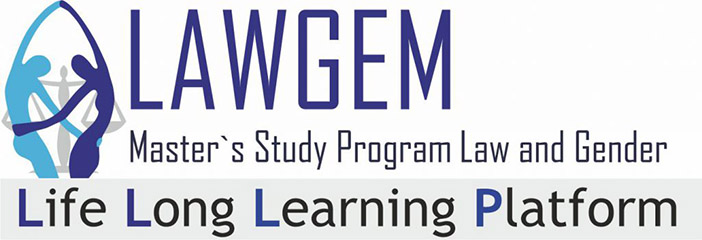Faculty of Law University of Belgrade in the cooperation with the OSCE Mission to Serbia organized the Spring School/Pilot Master – Law and Gender. This Spring School was based on the project LAWGEM and served as a kind of the pilot practicing of the future master`s study program Law and Gender. It covered all courses contained in this master`s study program curriculum, and the reading materials consisted to a great extent of the books published within the LAWGEM project. The School was organized in a hybrid form – in person at the Faculty of Law University of Belgrade and online, with 69 participants (students of undergraduate, master and PhD level), both from Serbia and other countries around the world (Albania, Belarus, Bosnia and Herzegovina, Brazil, China, Croatia, France, Germany, India, Iran, Italy, Montenegro, Russia and Vietnam). It is certain that participants of this School have gained valuable knowledge which will help them on their academic path and in their professional careers. On the other hand, the Spring School represented an excellent preparation of lectures and pedagogic experiences of the scholars from the University of Belgrade Faculty of Law for the future conducting the master’s study program Law and Gender.
In the conference room of the Faculty of Law on May 26, 2023, as part of the Law and Gender spring school, an optional course Gender Equality and Business Law was held. The lecturers were held by Professor Dr. Tatjana Jevremović Petrović and Associate Professor Dr. Jelena Lepetić. This course was opened by Prof. Dr. Jevremović Petrović with the topic relating to women’s participation from the perspective of business law, and focusing on the regulatory framework for female entrepreneurship. At the very beginning, she pointed out the importance of the European Union Strategy for Gender Equality, which has been developing very rapidly in recent decades, with reference to the plans in that area for the period from 2020 to 2025, as well as the specific position of women in society and the economy, with a presentation of statistical data on the number of women entrepreneurs in Serbia, where they make up less than 1/3 of the total number of entrepreneurs. As a rule, women entrepreneurs are engaged in those occupations that are traditionally considered “female”, such as, for example, providing cosmetic and hairdressing services. Furthermore, the professor referred to the challenges accompanying female entrepreneurship in the current conditions, starting from the fact that women are the ones who have to balance between family and professional life, making decisions that are not always in their best interest, and finally the biggest challenge which is reflected in the financing of women’s entrepreneurship, that is often accompanied by the impossibility of obtaining loans from banks, since women themselves often do not real estate and other means that would be used as a guarantee. What has especially sparked interest of the participants was the issue of the sexist campaign within the advertising of Nestlé’s Yorkie chocolate bar (not available in pink), that was thoroughly discussed. As a kind of conclusion, she pointed out the importance of the Action Plan of 2020 and its focus on the education and training of women in this area.
The second part of the course, presented by Prof. Dr. Jelena Lepetić, was dedicated to the issue of the role of women in making business decisions from the point of view of gender diversity in arbitration and corporate governance. At the beginning, she referred to arbitration, pointing out that as a rule, institutions choose a greater number of female arbitrators than the parties themselves when the choice is up to them in a specific case, and the question arises as to why the parties do not trust women in such a situation. The reason could be that women, unlike men, may face certain “obstacles” (for example, pregnancy, family care, etc.) that in those situations may prevent them from realizing their full potential. On the other hand, when it comes to management positions, according to data from the European Institute for Gender Equality, the percentage of women present in administrative bodies has increased by as much as four times compared to 2003, while according to data from Serbian Business Register, 22.6% of directors in companies in Serbia are women. With the aim of further development in this regard, the European Union is adopting numerous acts to improve the ratio of men and women in management positions, with the Directive from 2022 having a crucial role in this regard. This Directive predicts the percentage of the less represented sex (that are most often women) that must be present in management positions, by 2026. Finally, as a possible suggestion of what can be actively done in this regard, she presented the importance that national legislative bodies can have in the whole system, first of all, if not by prescribing, then by proposing quotas for gender representation that would apply only to the enumerated large economic companies and public companies that would be included in the specific case.
Gender Equality and Business Law 1: Involvement of Women: Framework for Female Entrepreneurship
Gender Equality and Business Law 2: Role of Women in Business Law Decision Making

